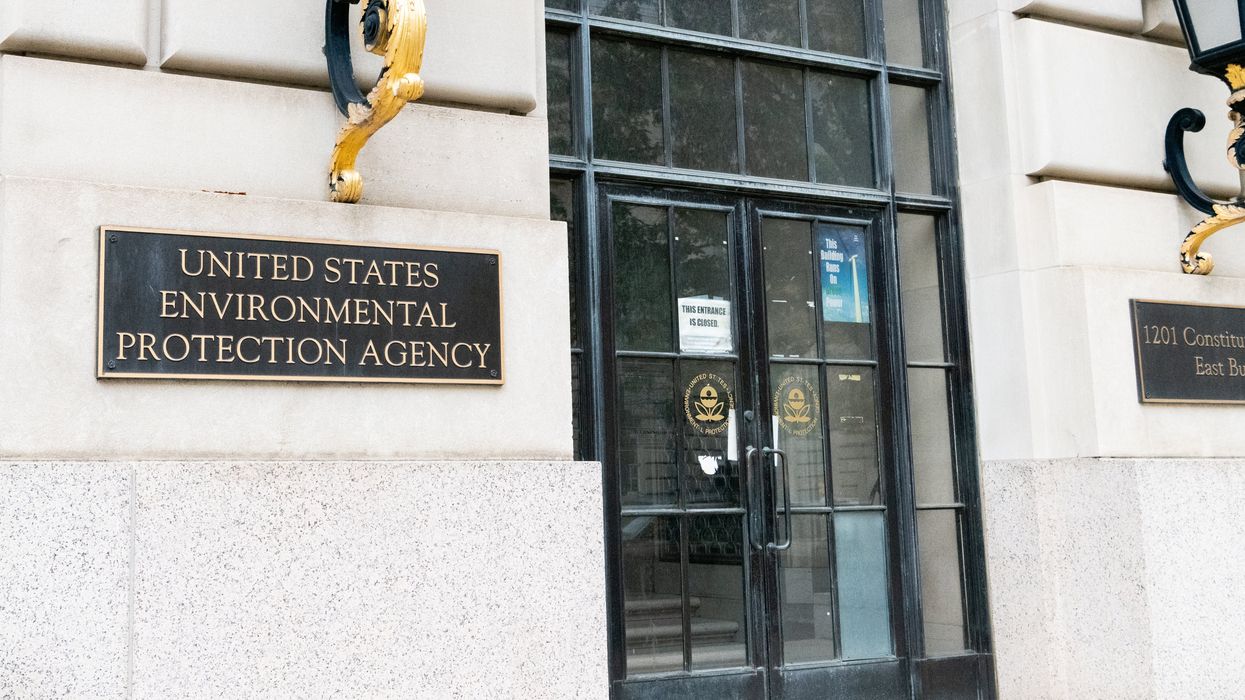Last spring and summer, The Fulcrum published a 30-part series on Project 2025. Now that Donald Trump’s second term has started Part 2 of the series has commenced.
The evidence is increasingly clear that President Donald Trump has adopted the right-wing Heritage Foundation’s manifesto, known as Project 2025, as the blueprint for his administration. Despite his disavowals during his presidential campaign, President Trump’s attacks on nineteen federal oversight agencies—including the Federal Trade Commission, Securities and Exchange Commission, Federal Reserve, Department of Labor, Department of Education, Federal Election Commission, Federal Communications Commission, and others—come right out of the Project 2025 playbook.
The latest regulatory agency to be targeted by the Trump administration is charged with keeping the nation’s environment clean and safe for all Americans: the Environmental Protection Agency (EPA). Established in 1970 by Republican President Richard Nixon as an agency mandated to act independently of the president and shielded from partisan politics, the EPA has been the decades-long enforcer of the nation’s most crucial laws, including the Clean Air Act, the Clean Water Act, the Safe Drinking Water Act, the Toxic Substances Control Act, the Endangered Species Act, and more.
Before the establishment of the EPA, environmental conditions in the U.S. were characterized by smog-choked cities, businesses polluting rivers and contaminating lands, and very few federal standards. This resulted in egregious situations, for example, where polluting businesses in one state would not be responsible when their toxins washed downstream or blew across state lines to another state.
The quality of life of every American has been improved immeasurably through decades of environmental enforcement led by the EPA. Yet the Trump administration, following the recommendations from the Project 2025 chapter about the EPA, is in the process of dismantling the EPA and undermining basic environmental laws, regulations, and rulings. According to a Pew Research Center poll, the EPA has long been one of the most disliked federal agencies among conservatives, with only 32% of Republicans viewing the EPA favorably.
President Trump has appointed, as the head of the EPA, a former GOP member of Congress, Lee Zeldin, who started his career as a moderate Republican from New York who supported solar energy and offshore wind power. But more recently, Zeldin has converted into a hard-right Republican, leading the effort to dismantle the very agency he now oversees.
The EPA, especially the work of the scientific research office, is supposed to be independent and protected from politics. It provides basic science, testing, and risk assessments, such as for toxins and chemicals, whether in the household, businesses, or nature. Nevertheless, a recent memo released by Administrator Zeldin calls for enormous changes at the EPA.
These include repealing dozens of the nation’s most significant environmental regulations, including protections for wetlands and limits on pollution from tailpipes and smokestacks.
Zeldin, in coordination with Elon Musk’s DOGE, which is laying off tens of thousands of federal workers across many agencies, plans to slash the EPA budget by 65% and shed thousands of employees. That includes dissolving the scientific research office “to align with administration priorities.” Biologists, chemists, toxicologists, and other scientists—75% of the research program’s staff, who provide the scientific foundation for rules safeguarding human health and ecosystems, are on the chopping block.
Such huge cuts would vastly undermine the EPA’s ability to monitor air and water quality and respond to natural disasters. Is it just a coincidence that Elon Musk’s company, Tesla, was fined by the EPA for Clean Air Act violations at his California manufacturing plant?
Critics of this evisceration, including elected Democratic representatives, are pushing back, saying the EPA and its research office were created by Congress and “eliminating it is illegal” without an act of Congress. But beyond any specific change, what’s clear is that Zeldin is looking to completely reorient the mission of the EPA.
Is the EPA going out of business?
In a two-minute-and-18-second video posted on March 12 to Elon Musk’s X, Zeldin announced what he called “the largest deregulatory announcement in U.S. history.” He stated that the EPA’s new mission is not to protect the environment but to “ lower the cost of buying a car, heating a home, and running a business.” He outlined what he called “31 historic actions,” including unwinding more than two dozen protections against air and water pollution, overturning limits on soot from smokestacks that have been linked to human respiratory problems and premature deaths, lowering restrictions on emissions of mercury (a neurotoxin), and a return to pre-1970 environmental chaos by abolishing the “good neighbor rule” that requires states to address their own pollution when it’s carried by winds or rivers into neighboring states.
In addition, when the EPA creates environmental policy, it would no longer consider the potential costs to society from wildfires, droughts, storms, and other disasters, or prioritize the protection of poor and minority communities. Zeldin also announced that the EPA would reconsider decades of settled science that show how global warming is endangering humanity. In his video announcing the “new” EPA, Zeldin did not mention once about protecting the environment or public health, the pillars that have guided the agency since its founding over 50 years ago.
Most disturbing about this EPA reset is that it oversees the enforcement of one of the most important federal rulings in the history of climate policy. Known as the “endangerment finding” and dating from 2009, it requires the government to limit planet-warming greenhouse gases like carbon dioxide that are driving climate change and intensifying hurricanes, floods, wildfires, and droughts. It supercharges the EPA to regulate these gases before they endanger human life. Last year was the hottest in recorded history, and, historically, the U.S. has been the world’s largest emitter of greenhouse gases. In effect, the Zeldin-led EPA is trying to relinquish its own legal authority to regulate greenhouse gases and climate change.
Under the new EPA, the Trump administration is declaring war against the environment. In the last two months, the White House has systematically degraded the government’s capacity to fight global warming by freezing funds for climate programs authorized by Congress, firing scientists working on weather and climate forecasts, and cutting federal support for the transition away from fossil fuels.
Trump’s stated mission for cutting back the EPA and other federal agencies is to cut fraud and waste from government bureaucracy. Certainly, that is a laudable goal. But a closer examination reveals that Trump is actually using “fraud and waste” as an excuse to attack government agencies that MAGA Republicans don’t like. So far, there is little evidence that they are saving very much for American taxpayers.
In the meantime, Trump’s anti-environmentalism agenda will not only cause much damage to the efficient functioning of the federal government, it could just as well destroy the environment, undermine climate change mitigation, and endanger Americans’ safety.
Steven Hill was policy director for the Center for Humane Technology, co-founder of FairVote, and political reform director at New America. You can reach him on X @StevenHill1776.





















